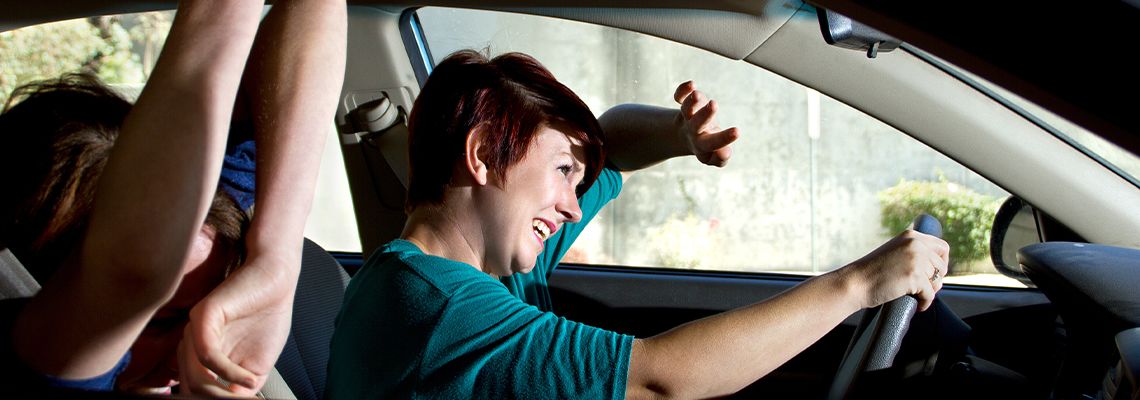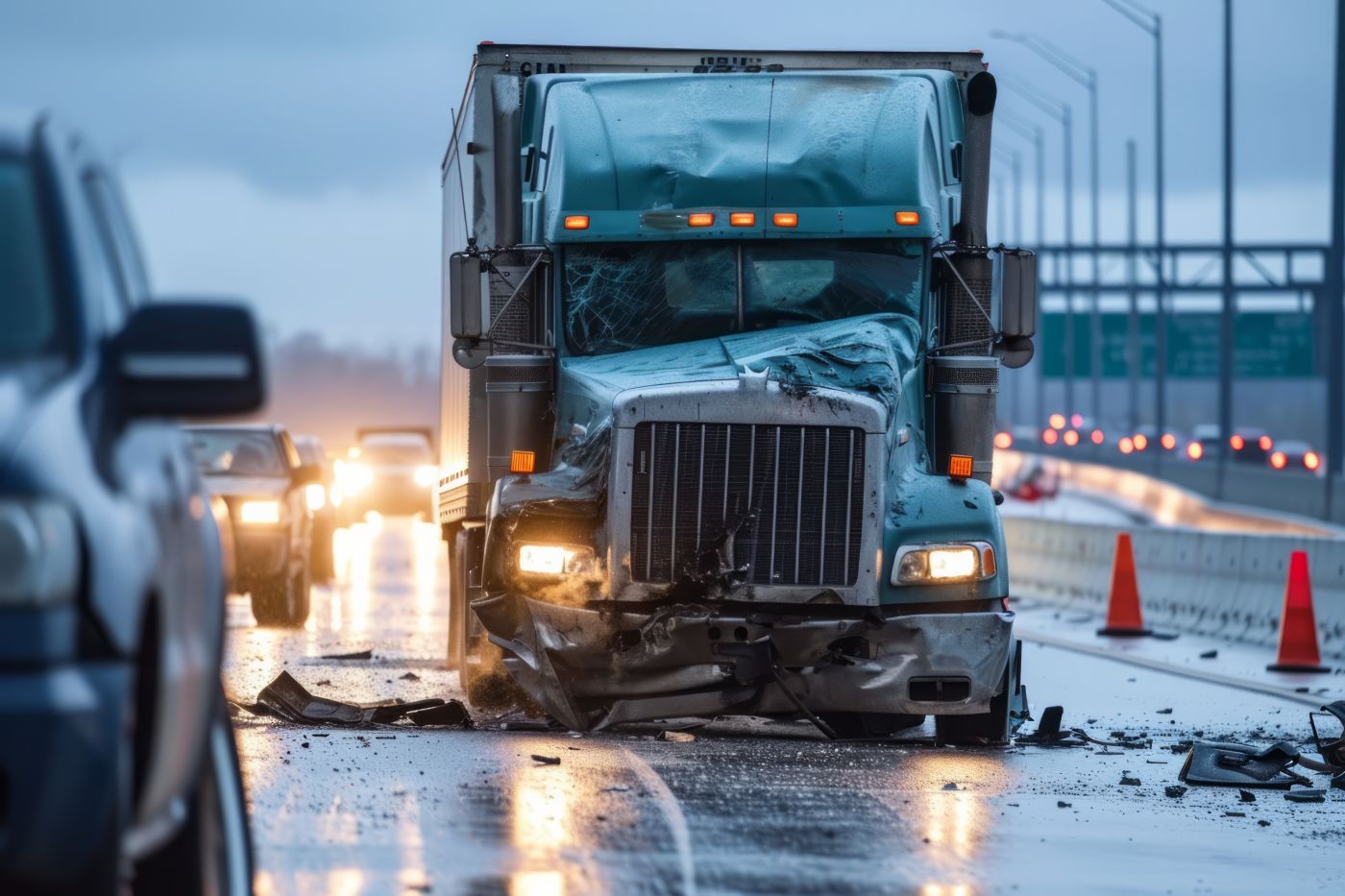
Rideshare services like Uber and Lyft have become a common mode of transportation in Texas. With the convenience and affordability they offer, many rely on these services for daily commutes, travel to social events, or even getting home after a night out.
However, rideshare accidents in McAllen, Texas, are an unfortunate reality, and when they occur, it can be unclear who is responsible for the damages. Guerra Law Firm PC, understands the legal intricacies surrounding these types of accidents and is committed to helping victims determine liability in rideshare collisions.
In cases of serious injury, understanding who is at fault is crucial to making sure that victims receive the justice they deserve.
When involved in a rideshare accident, determining liability isn’t always straightforward. Many factors come into play, including the status of the rideshare driver (whether they were online or offline at the time of the accident), the actions of the other drivers involved, and the insurance coverage provided by the rideshare companies.
Read on to learn more about the primary factors that contribute to liability in Uber or Lyft accidents, as well as the legal options available for those who are injured or have lost a loved one in such incidents.
What Makes Rideshare Accidents Different?
Rideshare accidents differ from traditional car accidents in several important ways. For one, they often involve an additional party: the rideshare company. This brings up questions regarding their liability and the level of responsibility they have in the event of a collision.
Rideshare drivers are typically classified as independent contractors, not employees of Uber or Lyft. This distinction plays a significant role in determining liability, as the rideshare company’s responsibility can vary depending on the specific circumstances of the accident.
Factors that make rideshare accidents different include:
Driver status: Whether the driver was logged into the app and actively looking for passengers, or was offline at the time of the accident.
Insurance coverage: Uber and Lyft provide different levels of insurance based on the driver's status during the accident (online vs. offline).
Third-party drivers: In many cases, the other driver involved in the accident might be solely at fault.
Understanding these differences is essential when determining who should be held liable in a rideshare accident.
Is the Rideshare Driver an Independent Contractor or Employee?
The classification of a rideshare driver as an independent contractor rather than an employee is a key factor in liability. This distinction affects the legal responsibility of Uber or Lyft in the event of an accident.
Independent contractor status: Since drivers aren’t employees of Uber or Lyft, the companies generally don’t take direct responsibility for their actions while driving.
Company liability: However, Uber and Lyft can be held accountable in certain cases if their driver was operating under the company’s app and was engaged in activities related to the platform at the time of the accident.
While rideshare companies often avoid direct liability due to the independent contractor status of their drivers, that doesn’t mean they’re completely off the hook. There are specific situations where Uber or Lyft may still be held legally responsible for an accident.
When Can a Rideshare Company Be Held Liable?
When the driver is actively driving for the app: If the driver is logged into the app and is either en route to pick up a passenger or already carrying one, Uber or Lyft can be held partially liable.
When the driver isn’t logged in: If the driver isn’t actively working for Uber or Lyft, the company is usually not responsible for the accident, but the driver may still be held personally liable.
This distinction highlights the intricacy of rideshare accident cases and the importance of understanding the driver’s status at the time of the accident.
Insurance Coverage in Uber and Lyft Accidents
One of the most important considerations in determining liability is insurance coverage. Both Uber and Lyft provide different levels of insurance based on the driver’s status when the accident occurs.
The three main stages of Uber or Lyft driver status are:
Driver is offline: The driver isn’t using the app to accept rides. In this case, the driver’s personal insurance is responsible for any accidents.
Driver is online but hasn’t accepted a ride: If the driver is actively seeking a passenger, Uber or Lyft provides limited coverage for accidents. This typically covers injuries and damages caused by the driver, but only up to a certain amount.
Driver is online and transporting a passenger: In this case, Uber or Lyft provides full coverage, including liability for accidents caused by the driver, as well as medical expenses for the passenger.
Rideshare insurance coverage is crucial in determining who pays for the damages in a collision. It’s important for victims to understand the status of the driver at the time of the accident to identify which insurance policy applies.
Who Can Be Held Liable in a Rideshare Accident?
Several parties could be liable in the event of a rideshare accident. The responsible party depends on the facts of the case, including the driver's status, the nature of the accident, and the actions of other drivers involved.
The possible liable parties include:
The rideshare driver: If the driver was at fault, either due to negligence, distraction, or reckless driving, they could be held liable for the accident.
The rideshare company: If the driver was acting within the scope of their duties (i.e., driving for Uber or Lyft), the company could be partially or fully liable for the damages.
A third-party driver: If another driver caused the accident through their negligent actions, they could be held entirely responsible, even if a rideshare vehicle was involved.
Other parties (e.g., manufacturers): If the accident was caused by a mechanical failure or faulty vehicle part, the manufacturer of the vehicle or its parts could be held liable.
Identifying the at-fault party in a rideshare accident requires careful investigation and legal experience. A skilled attorney can help determine liability and make sure that victims receive the appropriate compensation.
Compensation for Rideshare Accident Victims
Victims of rideshare accidents may be entitled to compensation for a range of damages, including medical expenses, lost wages, pain and suffering, and property damage. If the accident resulted in wrongful death, surviving family members may be entitled to additional compensation, including funeral expenses, loss of companionship, and other related costs.
Compensation can cover the following:
Medical expenses: These include hospital bills, emergency treatment, surgeries, and rehabilitation costs.
Lost wages: If the accident resulted in the victim being unable to work, they may be entitled to compensation for lost income.
Pain and suffering: This covers physical and emotional distress caused by the accident.
Property damage: This includes the repair or replacement of a vehicle damaged in the accident.
Wrongful death: In cases of wrongful death, surviving family members may be entitled to compensation for funeral expenses, loss of support, and emotional distress.
The amount of compensation available will depend on the severity of the accident and the extent of the injuries sustained. Working with an attorney who understands the intricacies of rideshare accident cases can help make sure that victims receive the full compensation they’re entitled to.
What to Do After a Rideshare Accident
If you’ve been involved in a rideshare accident, it’s important to take immediate steps to protect your legal rights and gather evidence that will help determine liability.
Here are the steps to take after a rideshare accident:
Seek medical attention: Always prioritize your health and safety. Even if injuries seem minor, seek medical attention immediately.
Call the police: Report the accident to the police and file a report. This will help create an official record of the accident.
Get the driver’s information: Exchange contact information with the rideshare driver, including their insurance details, driver’s license, and vehicle registration.
Document the scene: Take photos of the accident scene, including any damage to the vehicles, injuries, and relevant road conditions.
Notify the rideshare company: Report the accident to Uber or Lyft as soon as possible. They may have specific steps for submitting an insurance claim.
Consult an attorney: Speak with a personal injury attorney who has extensive experience in rideshare accidents. They can help you understand your legal options and fight for fair compensation.
Following these steps can help protect your rights and improve your chances of securing compensation for your injuries and damages.
Get in Touch Today
If you or a loved one has been injured in a rideshare accident, it’s essential to understand your legal options. Guerra Law Firm PC serves clients throughout McAllen and Southern Texas. The firm’s dedicated rideshare accident attorney is here to help you manage the legal process. Get in touch today for a consultation and let them help you pursue justice after a rideshare accident.


